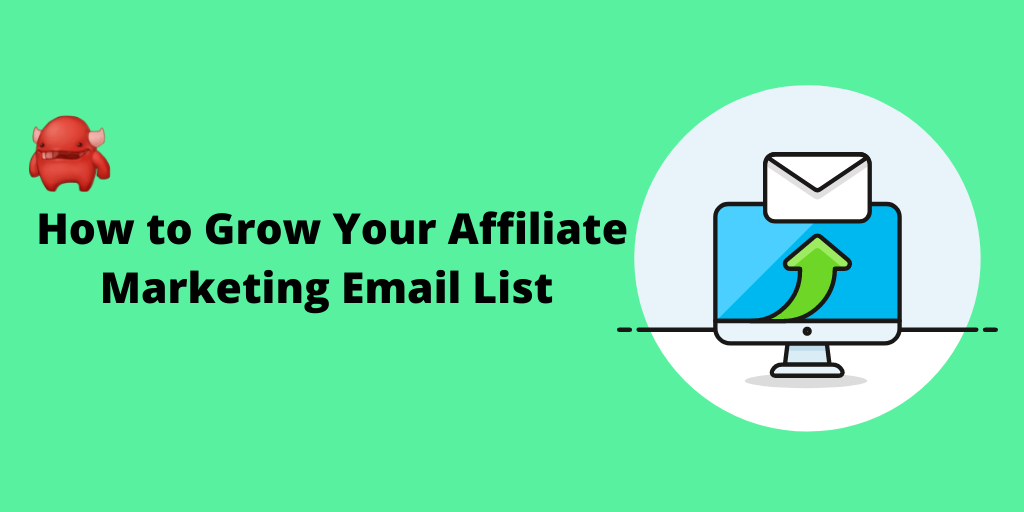Recommended Suggestions On Selecting A Hematologist Email list
Wiki Article
What Are The Factors I Should Be Thinking About Before Buying An Email List For Hematologists
It's important to consider several factors when purchasing the hematologist mailing list in order to make sure that the list you buy is correct, in compliance with the law, and pertinent to the marketing objectives. These are the most crucial elements to be considered: Quality of data and accuracy
Source of Information Check that email list providers have reliable sources. For instance, verify whether they are using professional directories (such as a medical database) or authentic opt-ins by doctors. The reliability of contacts will determine the validity of the list.
Verification of updates and data Ask about the verification of data process that your provider uses. Email addresses must be verified to get rid of inactive or invalid email addresses. Updates are necessary to keep the list up to date when healthcare professionals switch their jobs or work at different institutions.
Segmentation of the List: The list needs to be segmented by subspecialties (e.g. pediatric hematology or oncology) as well as years of experience and hospital affiliation. Well-segmented list helps you to focus your outreach more effectively.
2. Legal Regulations
Data Privacy Laws : Ensure that your list is in compliance with all applicable data privacy laws like the California Consumer Privacy Act, General Data Protection Regulation, in Europe or the General Data Protection Regulation, in the U.S. Email addresses need to be collected with appropriate consent.
The CAN-SPAM Act is a law in the U.S.A. make sure that the list complies with the CANSPAM Act, which governs commercial emails. Non-compliance with the CAN-SPAM Act can result in penalties. Additionally, your emails could get marked as spam.
Opt-in Consent: The consent list should consist of doctors who have specifically consented to receiving emails from third parties. Not sending emails to those who haven't signed up can cause poor engagement and potential legal issues.
3. Provider Reputation
Verify the credibility of the company. For a more reliable provider, check reviews or testimonials as well as case studies. A company with a solid track record is likely to offer information of the highest quality and in compliance.
Transparency: Choose a service that is clear about the source of data. Beware of companies that are in the dark or unclear regarding their method of collecting data.
Customer Service: You should select a provider who provides excellent customer service. If you need help for technical issues, inquiries regarding compliance or customizing lists, a strong support team can make a huge difference.
4. Cost and Return on Investment (ROI)
Pricing Model: Take into account the pricing model, whether it's pay-per-contact flat-fee, or subscription-based. Be sure the price is in line with the expected return on investment, while balancing the quality of your list and quantity with the budget for your marketing.
Refund or Replace Policy: A trustworthy firm will provide a replacement or refund policy for email addresses that are invalid. Be sure to read the entire conditions and terms of the policy before making any purchase.
Value for Money: Compare the list's features like options for segmentation and assurance of data accuracy, against the price. The list with the lowest price does not guarantee the best value for money if it has poor data quality.
5. Data Ownership & Usage
Single Use in contrast to. Multiple Use: Be sure to read the terms and conditions prior to using an email list. It is possible that you will only be permitted to use a list once in an email campaign. Other providers give you unlimited usage rights.
Exclusive vs. Shared Lists: Choose whether your list of email addresses is private or shared. Exclusive lists will have a higher rate of engagement since the list members are less likely to receive multiple marketing emails.
6. Data Integration and Format
Compatibility with CRM and Email Tools: Make sure that your email list can easily be integrated into CRM or email platforms. It is essential that the list is available in standard formats like CSV and Excel for easier integration.
User-friendliness: Consider how easy it is to sort and manage the list. Lists with a lot of data that is difficult to work with or segment could reduce the effectiveness and efficiency of your marketing campaign.
7. Ethical Questions
Relevance of email outreach to Hematologists. Be sure that your outreach emails are relevant to Hematologists. Not sending them content that does not match their expertise might result in poor engagement, and can negatively impact your brand.
Sending too many emails can be viewed as spam. If you send too many emails, you could harm the reputation of your email sender.
Conclusion
The purchasing of a hematologist's list can be a powerful tool for targeted marketing. But, it should be done with a sense of. Take into consideration the accuracy of the data, the provider's reputation, and their compliance with privacy legislation to ensure you get an accurate list. Prioritizing legal compliance, ethical marketing, and segmentation enable you to maximise your profits while also maintaining your brand's reputation. Follow the recommended hematologists email list for more info.

What Are The Things I Should Be Thinking About Before Buying An Appending For Data?
When you're considering services for data appending It is essential to look at multiple factors to ensure the service will improve the accuracy of your existing data while maintaining accuracy, compliance, and moral standards. Data appending involves enriching your database by incorporating missing or additional data such as email addresses, phone numbers, or demographic details. Below are a few important factors to take into consideration when buying data appending services: 1. Quality of data and accuracy
Data source: Check that the service provider uses reliable, top-quality sources, such as verified databases or public records. The most reliable providers typically collect data from trusted sources, making sure that the information appended is reliable and accurate.
Verification Process – Check to see if the provider has a method to validate and verify the data you have added. This will ensure that the information is current, accurate and relevant to your requirements. The provider should offer regular updates and cleaning of data.
Match Rate: Different providers have different match rates that is, the percentage of your records that are enriched by new information. As you strive for accuracy, don't sacrifice quality in favor of a more high match rate.
Customization based on the requirements you have you'll want to ensure that the company offers a data append option that is customizable. This could involve appending different kinds of information like contact information, behavioral or demographic and firmographic data.
2. Data Security and Privacy
Conformity with regulations - Data Appending involves handling and processing of personal data. This is why it is important that services adhere to the any applicable privacy laws. Appended data must also be used and processed legally in order to avoid fines and reputational harm, among other penalties.
Consent Management – Ensure that the information is provided by individuals who have explicitly consented to sharing their personal information. Beware of data providers who employ unsound practices and violate users' privacy.
Data Security: Ensure that the provider is using stringent security measures for your database, and the data that will be added. Secure data transfer protocols are provided along with encryption and access control.
3. Provider Reputation
Vendor Reputable: Select a provider who has an excellent reputation in the field in providing data appending that is reliable and in compliance. You can evaluate their past performance by reviewing the testimonials, case studies and reviews. A reputable company is more likely to provide top-quality services and ensure compliance with law.
Industry Specialization: Some companies are specialized in specific industries, such as healthcare and finance. Find vendors who have expertise and experience in your niche market if your business is in this area. They might offer more tailored solutions that align with the specific requirements of your business.
4. Cost and Return On Investment (ROI).
Pricing Models: Data appending services offer a variety of pricing options. They offer flat rates for bulk updates or per-record fees. It is essential to understand the structure, and whether it will fit into your budget. Be wary of products that appear to be extremely low in price, as it could be a sign of poor information.
Calculate the return on investment potential that comes from incorporating information. A good service will aid you in improving your marketing's performance, improve engagement, and increase conversion rates. Compare the cost of the service to the benefits you expect from having more accurate useful data.
5. Data Types and Appending Options
Types: Determine the data types you require to be appended to your databases. Common types of data include
Email addresses: crucial for emails for marketing campaigns.
Phone numbers are essential for customer service.
Demographic data is helpful to segment, target and marketing.
Firmographic data is essential for B2B firms that are targeting businesses by revenue, employee size, or industry.
Some services allow the apposition to social profiles. This is useful in digital and social marketing.
6. Data Format and Integration
Compatibility. Make sure that the data you provide is compatible with CRM program you are using, your marketing automation software or any other tool you are using. CSV or Excel formats and API integrations are all formats that are commonly used. They should permit data to be imported and utilized easily.
Data Cleaning and Enrichment Services: In addition to the appending process A reputable company will also provide data cleansing services. This involves correcting inaccurate information and removing duplicate records and erasing old records. Data enrichment involves more than adding new information. It also enhances the accuracy and quality of your existing database.
7. Ethical Questions
Transparency. Service providers must be open and transparent about how and where the data is collected. The ethical services for appending data will follow strict guidelines for data sourcing and data usage. They will ensure that the data is legally collected and properly.
Be aware that adding details about contacts, like telephone numbers or email addresses, should not result in unwelcome or intrusive actions. Use the data appended responsibly and adhere to best practices for outreach.
The article's conclusion is:
Be sure to consider the quality of data as well as the legal compliance and reputation of the service provider when you purchase a data appending service. Pick services that offer reliable, valid data that meets privacy regulations such as GDPR as well as CCPA. In addition, ensure that the appended data is compatible with your system and think about the long-term benefits of investing in accurate and enhanced data. By selecting the right appending service and focusing your efforts on ethical standards that will greatly improve your marketing strategies and business performance. View the pro data appending services for blog info.
